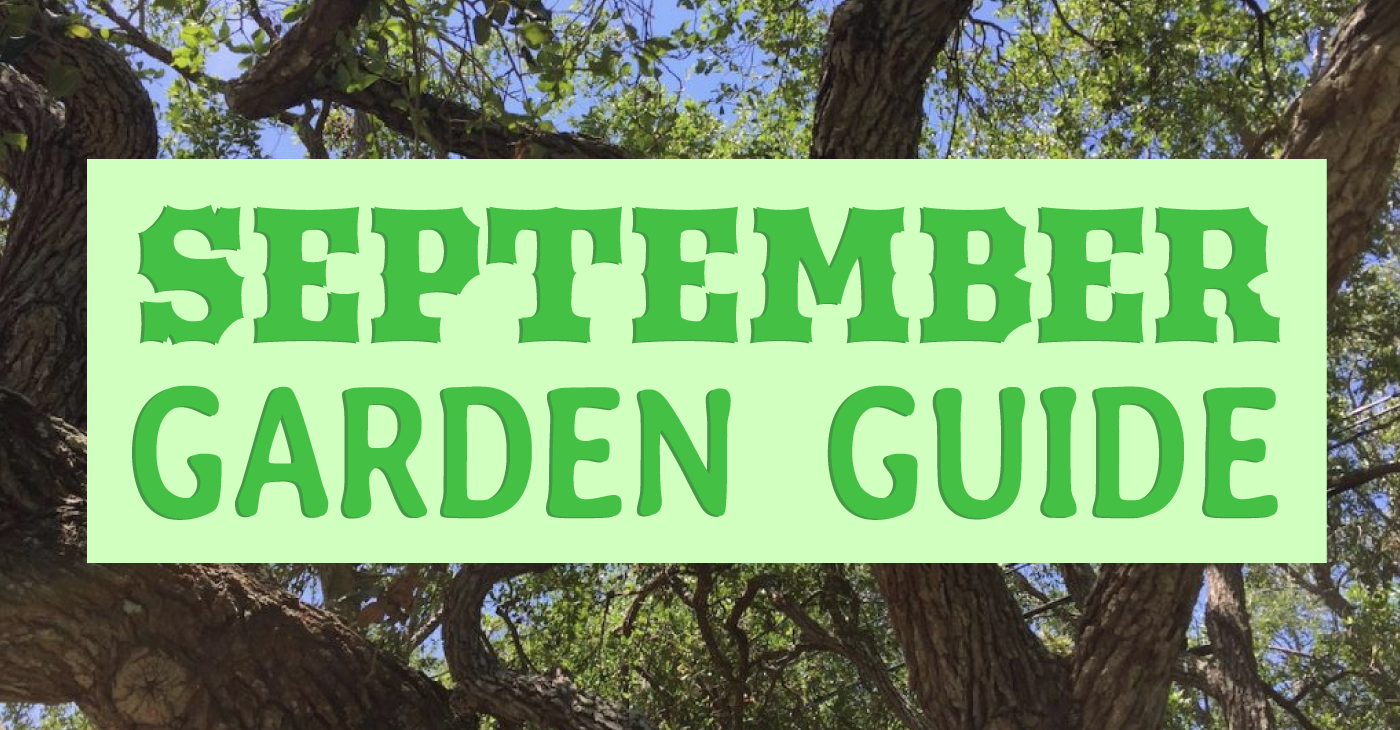
Plant
September is vegetable and seed month.
There are numerous selections of vegetables to be started in the garden or in containers. Come in and pick up our fall vegetable guide.
Tomatoes & Peppers
Tomatoes and peppers can be planted through the middle of the month.
Planting Guide: Our Tomato Varieties
Read: New! Grape Tomato ‘Ruby Crush’
Read: Fall Tomatoes
Herbs
A large selection of herbs will be ready to add spice to your garden.
Garden Guide: Herbs
Bluebonnets & Other Wildflowers, Nasturtiums & Fall Marigolds
Plant by seed or transplants.
Read: Fall is Wildflower Time!, Benefits of Marigolds in Your Veggie Garden, Nasturtiums – Super Pretty & Easy (Yummy Too!)
Don’t plant pansies or snapdragons until temperatures have cooled down!

There is still time to add quick summer color such as zinnias, coleus, purslane, moss rose and periwinkles.
Read: Success with Fall Flowers, Best Tips of Planting Trees This Fall, Organic Gardening, Fuel For Your Hungry Hummers
Fertilize
Tropicals
We recommend organic Maestro Rose Glo, or conventional Hibiscus Food
Vegetables
We recommend organic Medina Growin’ Green, Hasta Gro, Maestro Rose Glo or Plant Tone, or conventional Hi Yield Ammonium Sulphate.
Roses
We recommend organic Maestro Rose Glo.
Poinsettias
We recommend organic Maestro Rose Glo or Hasta Gro.
Blooming Annuals and Perennials
We recommend Organic: Medina Growin Green, Hasta Gro or Maestro Rose Glo, or conventional Hibiscus Food.
All plants that are especially stressed, or recently transplated
We recommend organic Hasta Gro Organic Fertilizer or Super Thrive
Christmas Cactus
We recommend organic Hasta Gro.
Read: How to Get Your Christmas Cactus to Bloom!
Read: It's Time to Fertilize For Fall!
Prune

- Continue removing faded flowers from annuals and perennials to encourage new blooms.
- Faded blooms and seedpods from crape myrtles to promote additional blooming.
- Rule of thumb for fall pruning is no more than 1/3. Wait until January for heavy cutbacks.
Lawns
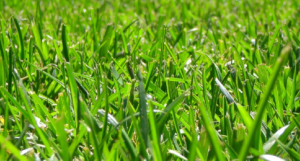
Apply organic Nature's Blend or Peat Moss for lawns, or conventional F-Stop granules as a preventative to brown patch fungus, which shows up as temperatures drop during fall and winter months.
Watch: Brown Patch Fungus
Apply organic Nature's Blend, Peat Moss or conventional Hi Yield Iron Plus to yellowing lawns.
Apply Nature’s Blend, Peat Moss, or Scotts Disease Ex to lawns prone to Take All Patch Fungus.
Continue to water deeply every 1 to 2 weeks if little rainfall.
Wait to apply fall fertilizer until October!
Water
- Check all newly planted material for water every day.
- Check pots, containers and hanging baskets often as they dry out quickly and need more water.
- Apply mulch as needed to help conserve moisture.
- Make arrangements for someone to water if leaving for more than 2 days, especially with new plants.
- Follow City Guidelines.
Read: Summer Watering 101
Weed Control
Spray only growing weeds with Captain Jacks Deadweed Brew or Horticultural Vinegar. These products kill all vegetation; so protect plants from drift or over spray.
Apply organic Corn Gluten meal, or Weed and Grass Stopper with Dimension in the fall and spring to prevent seeds from sprouting. It will not control already growing weeds.
Weed B Gon or Image can be applied once we cool down into the 80’s temps. An organic option is Captain Jack’s Lawn Weed Brew.
Watch For
Masses of worms eating your oak tree.
Treat with organic Spinosad or Thuricide, or conventional Cyonara. Read: Oak Tree Caterpillars
White Flies on tropicals and perennials, especially lantana and hibiscus.
Treat with organic Insecticidal Soap, Neem Oil, Spinosad Soap, Bee Safe 3-in-1 Spray, or conventional Cyonara or a long acting drench like Fertilome Tree & Shrub
Watch: Yucky Whitefly
Fleas and Ticks
Treat lawns with organic Spinosad, or Diatomaceous Earth Crawling Insect Killer, or conventional Cyonara
Mealy Bugs
Treat with organic Bee Safe 3-in-1 Spray or Insecticidal Soap or Spinosad Soap, or conventional Cyonara, or Bonide Systemic Liquid or Granule
Read: Mealy Bugs are Here!
Caterpillars or their damage (chewed leaves).
Spray organically with Spinosad or Thuricide.
Read: Not All Caterpillars are Bad!
Mosquitoes
Use Mosquito Beater Liquid for quick kill or Mosquito Beater Granules to repel.
Read: Mosquito Solutions
Note: Please, Please, Please, don’t kill the bees!
They are one of the best sources we have to pollinate our fruits, vegetables, flowers, and shrubs.
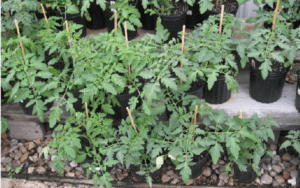
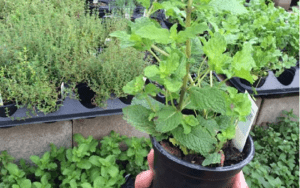
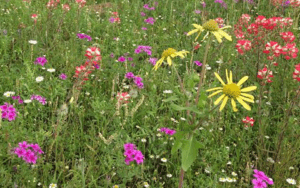
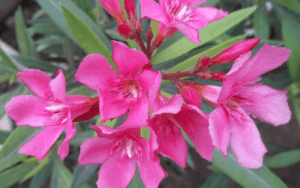
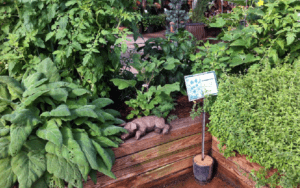
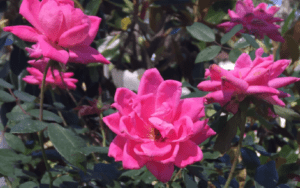
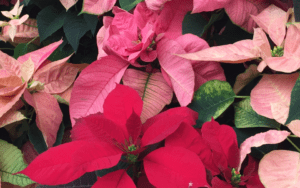
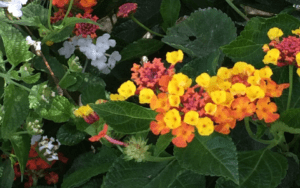

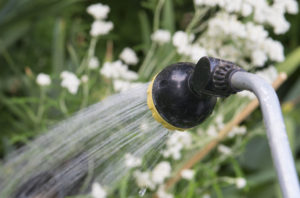
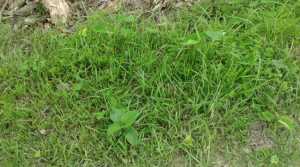
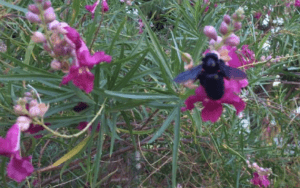














Reader Interactions